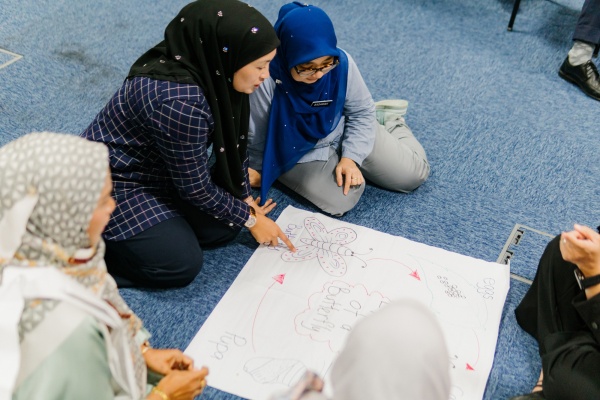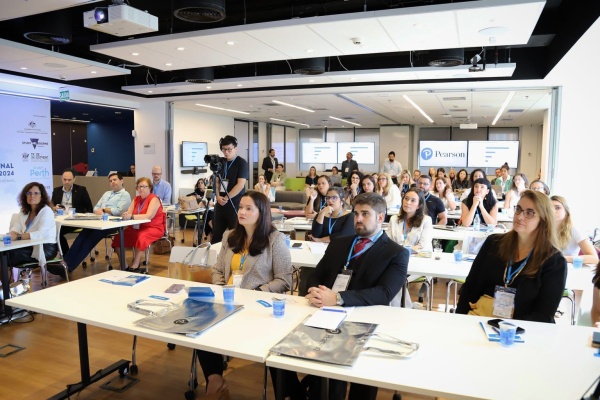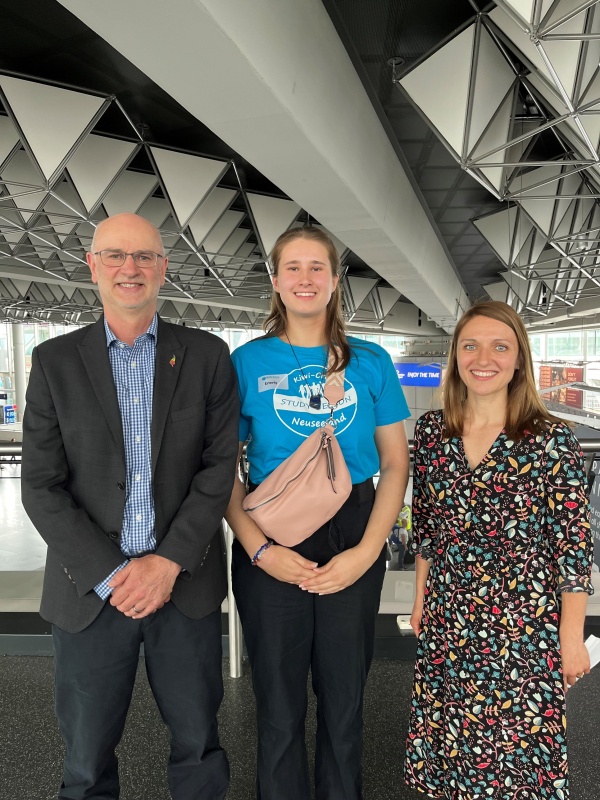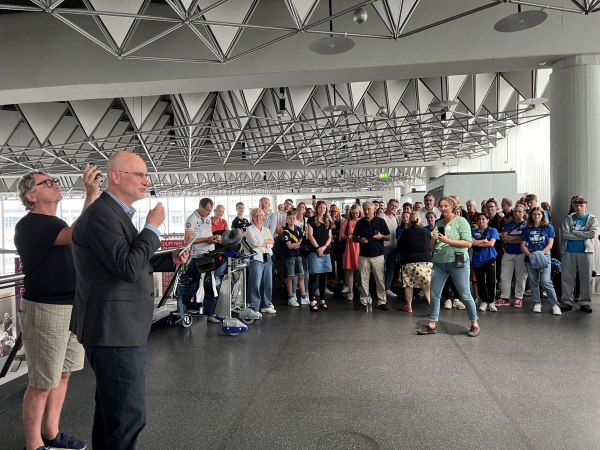Search
Showing 10 of 163 results for 丁树江 投资价值分析 学位论文 电子科技大学 2024 页码
-
Tokyo Board of Education seeks NZ education providers for Masterclass promotional opportunity
The Tokyo Metropolitan Board of Education (BoE) is one of Education New Zealand Manapou ki te Ao’s (ENZ) education cooperation arrangement partners in Japan. The BoE is currently looking for 1-2 New Zealand education providers to provide online classes for their Virtual Study Abroad session, part of the Tokyo English Channel.
These classes are designed to provide Tokyo secondary school students with the opportunity to connect with education providers from around the world, including New Zealand. During these sessions, students are exposed to new ways of thinking from lecturers while interacting and enhancing their communication skills in English with other international participants. The deadline to submit an expression of interest (EOI) is Tuesday 29 May COB NZT.
ENZ’s Senior Market Development Manager, Misa Kitaoka, said that this opportunity gives New Zealand providers a chance to promote themselves to a wide audience that includes high school students in Japan learning English as a second language as well as a larger audience of English-speaking students from Australia, Canada, Egypt, Finland, France, Indonesia, Jordan, Singapore, Thailand, Taiwan, UAE, and Viet Nam.
“This is a great opportunity for Education New Zealand and New Zealand providers to work with the Tokyo Metropolitan Board of Education to co-develop educational materials for a significant number of Japanese secondary school students. In 2023, the BoE Virtual Study Abroad pages received 840,000 views.
“Lecture videos will include promotional materials from your institution and will be publicly accessible on the BoE website after the Virtual Study Abroad Session,” said Misa.

Screenshot of the BoE website which hosted Massey University classes in 2022. The videos can be accessed via this link.
The online lectures will contain:
1. Two pre-class videos: Introduction of the lecture theme and discussion topics of approximately 5 minutes each. The pre-recorded videos will be streamed on the Virtual Study Abroad website for students to watch before participating in the actual lecture.
2. Actual lecture: Delivered online via Zoom or other video conference system on 14 October or 4 November 2024. The lecture contains:
- A two-minute school promotion (pre-recorded video)
- Lecture Part One. Presentation from the lecturer (10 minutes)
- 20 minutes of group discussion
- A 10-minute presentation by students
- Lecture Part Two. Presentation from the lecturer (10 minutes)
- 20 minutes of group discussion
- A 10-minute presentation by students
- A five-minute wrap up
The event overview and EOI requirements can be found in this document: Tokyo English Channel_Virtual Study Abroad_Lecture Themes and Event Outline.pdf.
Interested parties can submit their EOI by completing this online form: https://forms.office.com/r/U544y9CQ7D
Selection Criteria includes:
- Lecture Theme: Is the lecture theme relevant to New Zealand or the New Zealand-Japan relationship?
- Abstract: Does the abstract clearly show New Zealand’s capability or strengths in the selected topic?
- Audience: Is the lecture abstract engaging and interesting for the target audience of high school students?
The timeline for the EOI process is as follows:
Timeline:
- 31 May: ENZ submits the New Zealand finalists to Tokyo BoE
- 28 June: NZ finalists confirm the lecture title and abstract with Tokyo BoE
- 30 August: NZ finalists work with Tokyo BoE nominated vendor to record pre-lectures
- 30 August: NZ finalists provide school/institution promotion video* to Tokyo BoE
*School/institution promotion video doesn’t have to be recorded for this purpose. The school/institution can provide their existing videos e.g. already on YouTube, etc.
14 October or 4 November: Participate in online event
Examples from past event can be found via these links:
Questions about the Tokyo English Channel can be sent to ENZ’s Japan team at Japan@enz.govt.nz.
-
Agents get a taste of ENZ’s ‘Future of Sustainable Food’ pilot at ICEF ANZA 2024
Over 50 international education agents at the ICEF ANZA workshop held in Ōtautahi Christchurch from 22 to 24 April experienced Education New Zealand Manapou ki te Ao's (ENZ) education pathways prototype (Stage 1). The prototype was designed to introduce students to the huge global opportunity around sustainable food design and production, and the world-leading education pathways from New Zealand institutions that can open employment doors into a wide range of exciting careers.
“In New Zealand, you can learn from top experts and study in the heart of where food is grown, technology is advanced, and industry opportunities abound."
This pilot came about in response to agents’ demand for more information about what expertise sets New Zealand apart from other destinations and makes a New Zealand education unique.

An education agent from Australia trials the ‘Future of Sustainable Food’ prototype at the ICEF ANZA conference held in Ōtautahi Christchurch last month.
To develop the pilot, ENZ worked with Jix Reality – a Christchurch-based tech company headed up by an ex-international student to New Zealand – using virtual reality to provide an immersive and engaging experience, including examples of real New Zealand study environments. The user journey involved a visualisation of the full breadth of the food production value chain, illustrating how this goes well beyond agriculture to encompass other domains and careers such as food engineering, value chain management and marketing. The experience went on to highlight New Zealand’s credentials as one of the world’s top food developers and exporters, and allowed the user to browse relevant study programmes and consider which one could lead them to their desired future career.

Jix Reality Founder, Sakthi Ranganathan, (right) is seen here demonstrating the sustainable food production narrative on an interactive table with an education agent from Kenya.
ENZ’s General Manager Sector Engagement and Innovation, Wendy Kerr, was on hand at the workshop to talk to the agents and collect feedback via a survey. Wendy said that the results were very clear – agents agreed almost unanimously that the prototype provided new and useful information about New Zealand’s strengths, study pathways for students and future employment opportunities in this field.
“92% also confirmed that this experience made it more likely that they would recommend New Zealand as a study destination.
“One agent said that they think it is a great tool to market New Zealand as students can see their future and make informed decisions while another told me that it was a great experience and the tech and approach is ahead of its time,” added Wendy.

ICEF ANZA Chief Executive, Markus Badde, trialled the VR experience and is pictured here providing his feedback to Jix Reality Founder, Sakthi Ranganathan, and ENZ’s GM Sector Engagement and Innovation, Wendy Kerr.
Attending education providers also had the opportunity to try the prototype, one describing it as “a wonderful virtual reality marketing tool which is of enormous value to agents, schools and service providers. A great investment and even better you have used a Christchurch based company to develop it.”
This pilot forms part of ENZ’s Innovation and Growth programme, seeking new ways to support the diversification and growth of the international education sector. The next stage for the pilot will be for ENZ’s Innovation and Growth team to use the feedback collected to develop the prototype further. It will then be turned into a marketing tool that is more accessible, informative and scalable for agents to use with students.
If you’d like to help us with beta testing or contribute content to future stages please register your interest with tim.brown@enz.govt.nz.
-
From the Acting Chief Executive: Cold temperatures, warm hearts
Tēnā koutou katoa
As a recent “polar blast” bought frost and icy conditions across New Zealand, my thoughts turned to the international students who arrived here in the warmth of summer. Living a long way from home in a different country is challenging enough without being subjected to freezing conditions. The good news is that all our research and everything we hear from our international students is that the welcome and manaakitanga they receive is universally warm.
In our Student Experience survey of 4,755 international students from the end of last year, more than 70 nationalities, 84 percent rated their overall experience positively, while another 83 percent said they would recommend New Zealand as a study destination.
Last Wednesday, along with our Chair, Tracey Bridges, we appeared before the Education and Workforce Select Committee comprising nine Members of Parliament. This happens every year. As a government agency it is part of reporting to Parliament. I am extremely heartened by the level of interest all the committee members had in international education. It is good to know the sector has advocates within Parliament.
Tracey has recently returned from Singapore, Thailand, and the Philippines as a member of the business delegation supporting Prime Minister, Rt Hon Christopher Luxon. Education was a big part of the Prime Minister’s itinerary, and it was great to have Tracey in the delegation. Throughout the entire trip we took every opportunity to emphasise the benefits of international education to the Prime Minister. A good example was in Thailand where ENZ hosted a series of engagements, including the New Zealand Alumni Networking Event. At this event the Prime Minister met 25 accomplished New Zealand alumni, who have made substantial contributions to the bilateral relationship between New Zealand and Thailand. You can read more about the visit in our E-News article here.
New Zealanders going offshore for an experience is an important part of international education and ENZ’s work. It is pleasing then to see 60 applications for the group round of the Prime Minister’s Scholarship for Asia and Latin America that closed 19 April 2024. Of the 60, 22 were for Latin America and 38 for Asia. The applications are being assessed and successful scholarship recipients will be determined in a few weeks’ time.
In summary it has been, as it always is, a busy and productive month across international education. May will be no different.
Waiho kia pātai ana, he kaha ui te kaha
Let the questioning continue; the ability of the person is in asking questions.
Keep warm everyone.
Dr Linda Sissons
Acting Chief Executive -
50 Malaysian educators experience New Zealand’s interactive early childhood education
On 9-10 May 2024, Education New Zealand Manapou ki te Ao (ENZ), the Ministry of Education Malaysia, and the University of Auckland co-hosted a two-day workshop for Malaysian educators. The theme of the workshop was "Engage, Explore, Excel: Interactive Play Strategies for Effective Preschool Education".
The workshop gave approximately 50 Malaysian preschool educators the opportunity to see and experience for themselves some of New Zealand’s innovative and interactive approaches to education that start in early childhood education facilities. The workshop was also an opportunity to strengthen bilateral ties between our two countries.

Workshop participants discussing learning techniques used in New Zealand early childhood institutions.
Professor Marek Tesar, a distinguished early childhood education expert from the University of Auckland led the workshop and shared his expertise with the group. He highlighted innovative approaches to implementing interactive outdoor play and used practical insights with theoretical foundations to enhance the educators' skills and knowledge. This included leading the group through experiential activities and thought-provoking discussions, including how outdoor play can instil a sense of environmental stewardship among teachers and children.

Malaysian early childhood educators at the workshop on "Engage, Explore, Excel: Interactive Play Strategies for Effective Preschool Education".
Ben Burrowes, ENZ’s Regional Director Asia (excluding China) and Acting General Manager International, and Emma Verry from the New Zealand High Commission in Kuala Lumpur attended the session and extended warm welcome remarks, underscoring the importance of international collaboration in advancing early childhood education in both countries.

From left to right: ENZ’s Ben Burrowes, Juraida Binti Umat Bidin, Deputy Director of Preschool Sector Curriculum Development Division and Nooraini Binti Kamaruddin, Senior Deputy Director Curriculum Development Division from the Ministry of Education Malaysia, Emma Verry from the New Zealand High Commission, ENZ’s Market Manager for Indonesia and Malaysia Naluri Bella, and University of Auckland’s Professor Marek Tesar. They are pictured here after the exchange of commemorative gifts in recognition of the occasion.
Ben said that the workshop gave a wonderful opportunity for educators from Malaysia to come together to hear from Professor Tesar and explore the multifaceted benefits of interactive play.
“Our two countries recognise the critical importance of the formative years in a child’s development and the profound impact that quality early childhood education can have on their future success and well-being.
“Participants were all very enthusiastic about discovering new ways to engage and empower their students. We hope this will lead to more collaboration and sharing of ideas between our two countries that educators and students alike can benefit from,” said Ben.
-
Latest Immigration New Zealand update: English translations will be required for visitor visa suppor
English translations will be required for visitor visa supporting documents
Immigration New Zealand (INZ) has announced that from 17 June 2024, all supporting documents submitted with visitor visa applications to INZ must be provided in English. This includes visitor visa applications from people wanting to study for less than three months.
For further information on what this means please see the announcement on the INZ website: English translations will be required for visitor visa supporting documents | Immigration New Zealand.
There are no plans at this stage for student visas to follow suit.
-
69,000 international student enrolments in 2023
The latest figures show that there were 69,135 international student enrolments* with New Zealand education providers in 2023. This represents a 67 per cent increase compared to the full year in 2022 and 60 per cent of annual enrolments in 2019.
“Over 69,000 enrolments from international students all over the world is good news for our education sector and positive for our communities,” said Dr Linda Sissons, Acting Chief Executive of Education New Zealand Manapou ki te Ao.
“It confirms that New Zealand is an attractive place to study, offering a quality learning experience inside and outside the classroom in a safe, welcoming environment.”
“New Zealand is a small country and for many students, rubbing shoulders with people from other cultures gives them a greater understanding of the issues facing our complex world. In this time of fragile geopolitics, the melting pot of campus life can help build greater understanding and tolerance.”
The university subsector saw the strongest recovery with 29,065 students, representing 86 per cent of 2019 enrolments. Universities and schools are New Zealand’s two largest subsectors for international students.
International student enrolments have grown compared to 2022 in all subsectors except wānanga. English Language Schools saw the greatest percentage increase in international enrolments, lifting by 511 per cent from 1,565 to 9,570.
As with all New Zealand’s competitors in the international education sector, China is the largest source market for international students at 35 per cent.
India is second largest at 11 per cent, Japan at 10 per cent, South Korea at five per cent and Thailand at four per cent. Of the other source countries, no other country represented more than four per cent of total enrolments.
“Enabling a thriving and globally connected New Zealand through world-class international education is a government priority. We are actively diversifying our recruitment efforts to reach international students in a broad range of countries,” Dr Sissons said.
More information on enrolment numbers can be found here.Note: * One individual may enrol more than once
For further information:
Justin Barnett | Director of Communications, Education New Zealand
+64 21 875 132
About Education New Zealand (ENZ) https://www.enz.govt.nz/
Education New Zealand Manapou ki te Ao (ENZ) is the government agency dedicated to helping Aotearoa New Zealand realise the social, cultural, and economic benefits of international education. Our role is to promote New Zealand as a high-quality education destination offering excellent education and students experiences and to encourage New Zealand students to study overseas.
With approximately 110 staff in 16 locations around the world, ENZ works closely with New Zealand’s diverse education sector which includes schools, English language providers, Private Training Establishments, Institutes of Technology and Polytechnics (Te Pūkenga), and universities. Internationally, we work with a range of education stakeholders, including government agencies and education providers to identify and encourage sustainable growth opportunities for New Zealand’s education sector.
This page was last updated on 23 July 2024.
-
From the Acting CE: Forward together
Tēnā koutou katoa
Last week we took time internally to reflect on our work over the 2023/24 financial year. So much excellent work has happened over the past twelve months – it was wonderful to come together virtually as an organisation to celebrate the achievements.
There are good reasons to celebrate. International students are returning to New Zealand. The latest enrolment figures show that there were 69,135 international student enrolments with New Zealand education providers in 2023. This represents a 67 per cent increase compared to the full year in 2022 and 60 per cent of annual enrolments in 2019.
This is positive news for our education sector and good for our communities.
A key part of our strategy is to partner and connect and to be an enabler of international education for New Zealand, so I thought I would share with you some recent engagements with that in mind.
This past month I had the pleasure of speaking at the opening plenary session of the annual SIEBA (Schools International Education Business Association) conference in Auckland. The theme of the hui was Global Threads Local Ties. The school sector is very important to New Zealand’s international education offering. It is the second largest sub sector after universities, representing about 20 percent of the value of our entire industry and it is where we find the highest economic value and the greatest opportunity to pathway through to other New Zealand providers.
Likewise, in early August I was pleased to welcome to our Wellington office a delegation of twenty indigenous students visiting from the University of Toronto. Canada is one of New Zealand’s closest and longstanding international partners and it is pleasing to see indigenous-to-indigenous cooperation between both countries increasing. We are really noticing growing interest in this overseas as you will read in this article here. - Indigenous Internationalisation a hot topic
Turning our attention to the next 12 months, in June the ENZ Board approved our business plan for this financial year (1 July 2024 to 30 June 2025). The plan has four clear priorities:
-
To grow and diversify the number and value of international students studying with New Zealand
-
Partner and connect to be the trusted voice and enabler of international education for New Zealand
-
To deliver sector growth through services that are valued by the sector, international students and New Zealand Inc partners, and
-
Optimise ENZ to be a more efficient and effective Crown Agency.
When it comes to delivering valued sector services, the upcoming New Zealand International Education Conference (NZIEC KI TUA) in August will be provide an excellent opportunity to come together as a sector to listen, learn, discuss, contribute, and network with specialists and colleagues.
If you haven’t yet registered, I encourage you to check out the conference website. This year it will be held from 6 to 8 August 2024 at Tākina Convention Centre in Wellington.
We have a stellar line up of speakers and it promises to be an engaging and informative event.
Whaowhia te kete mātauranga
Fill the basket of knowledge.
Ngā mihi nui,
Dr Linda Sissons
Acting Chief Executive
Education New Zealand Manapou ki te Ao
-
-
Indigenous internationalisation a hot topic across North America
The topic of Indigenous Internationalisation has been proving a popular one at international education events across North America recently. Education New Zealand Manapou ki te Ao (ENZ) Associate Director of Engagement, Natalie Lulia, was asked to share her thoughts alongside experts in panel discussions in both the United States and Canada in May and June. The invitations offered a good opportunity to showcase the important work that Aotearoa New Zealand is doing in indigenous-to-indigenous engagement and internationalisation and our unique approaches to international education.
It was at the 76th annual NAFSA Association of International Educators conference in New Orleans that Natalie was first invited to take part in a panel talk on the subject “What is indigenous-led internationalisation?”. Natalie was joined on the panel by Distinguished Professor Jacinta Ruru, Deputy Vice-Chancellor Māori at the University of Otago, and Paulette Tamati-Elliffe, Manager at Te Rūnanga o Ngāi Tahu.
The panel explored how indigenous and non-Western knowledge and worldviews are essential for intercultural learning through the experiences and work of Māori education experts. The panel provided examples of how indigenous ways of knowing and being can enhance intercultural learning and what Indigenous-led internationalisation looks like in practice.
The panel was moderated by DuBois Jennings, ENZ’s Director of Engagement North America, who noted that the session was extremely well attended.
“It was very inspiring listening to our panel of experts share their thoughts with a very attentive audience. It was so popular that people were standing at the back, which is indicative of how the global international education community values our expertise in this area,” said DuBois.
A te ao Māori approach to education was then the feature of Chief Executive for Te Whare Wānanga o Awanuiārangi, Professor Wiremu Doherty, who delivered a powerful keynote address at the British Columbia International Education Week Conference in Vancouver in June. Natalie joined Professor Doherty in a panel presentation on: ‘Talking Circle: Exploring the intersection between Internationalization, Indigenization, Decolonization and what it means to be Indigenous Serving.’ Also on the panel were Sarah Child and Kelly Shopland from North Island College in British Columbia, Canada who had recently returned from visiting Aotearoa New Zealand with a group of indigenous Canadian students in May.

ENZ’s Natalie Lulia participating in the panel discussion on ‘T Talking Circle: Exploring the intersection between Internationalization, Indigenization, Decolonization and what it means to be Indigenous Serving’ at the British Columbia International Education Week Conference in Vancouver in June.

Professor Wiremu Doherty, CE of Te Whare Wānanga o Awanuiārangi, delivers his keynote address on Māori education at the British Columbia International Education Week Conference in Vancouver in June.
Natalie said that it was an honour to have been invited to speak at both events, alongside experts who are the driving forces behind this work within iwi, universities, and government agencies in Aotearoa New Zealand.
“International educators around the world are showing increasing interest in the unique approach we take to international education here in Aotearoa New Zealand. We are seen as a country that is leading the way in indigenous-to-indigenous engagement and internationalisation.
“These opportunities are not just a chance to share our experiences, but importantly an opportunity to learn from each other. We can learn from indigenous educators, thought leaders and communities here too - this is important in building reciprocal and meaningful partnerships,” said Natalie.
Natalie added that “This is a key area that Aotearoa New Zealand can leverage to support student mobility, research collaboration and partnerships with institutions around the globe. ENZ will continue to work with our education partners, Māori and indigenous communities and use these platforms to share our expertise and ultimately grow indigenous international education for our country”.
Upcoming platforms to continue showcasing Aotearoa New Zealand’s approach to indigenous internationalisation will take place at the next Global Inclusion 2024 Annual Conference in Washington DC on 29 October to 1 November. Then in March 2025, the ENZ North America team will be leading a one-day symposium highlighting indigenous international education at the Forum on Education Abroad conference in Toronto, Canada.
If anyone is interested in connecting with the ENZ team in North America to have a chat about this topic or receive further information, please email northamerica@enz.govt.nz.
-
NZ among top 10 preferred educational destination for Brazilian students
According to the latest survey by Belta (Brazilian Educational & Language Travel Association), New Zealand ranks seventh on the list of preferred educational destinations for Brazilian students. The survey interviews 836 students and 569 international education agents along with companies who work in the international education sector in Brazil.
Respondents who chose New Zealand said their choice was based on New Zealand’s excellent positions in various international rankings for quality of life, education, civil rights protection, government transparency, and women's safety/rights. Other factors are being able to study and work during the study programme, and New Zealand’s natural beauty and cultural attractions.

International education professionals attended the Belta survey launch event. Photo credit: Belta
According to the survey, the main objective of students participating in a study abroad program is to fulfil the dream of experiencing different countries and cultures (39.6%); the second is the interest in language studies (27.2%).
The majority (77%) of those who said they went abroad to learn a new language chose English when travelling. The quality of education is another reason cited by respondents who chose New Zealand. All universities in New Zealand are ranked among the top 2% in the world by major international indices, such as QS World Universities and THE – Times Higher Education.
Bruna de Natale, Education New Zealand Manapou ki te Ao (ENZ) Market Development Manager in Brazil, said, “The Belta survey is the most important source of consistently updated international education data in Brazil. It is very encouraging that Brazilians continue to perceive New Zealand as a safe, trusted and quality education to develop their academic and professional goals.,”.
The data from the Belta Survey 2024 reinforces the international Better Life Index, which measures variables that constitute the quality of life in countries of the Organization for Economic Co-operation and Development (OECD). In this survey, New Zealand is ranked as one of the best countries in the world to live in.
-
Neuseeland still a popular destination for German High School students
Germany takes the number one spot in all of Europe for the number of international students it sends to New Zealand and the fourth largest in the world for sending high school students after China, Japan, and South Korea. In 2023, 1,417 German students were enrolled at high schools across New Zealand which represented 10% of the total number of school students in the country.
There are positive signs that this number will continue to increase in 2024. 82 high school students were recently farewelled by the New Zealand Ambassador to Germany, Craig Hawke, and Education New Zealand Manapou ki te Ao (ENZ’s) Associate Director of Engagement in Germany, Olga Elli at an event at Frankfurt Main Airport on Sunday 14 July.
The event was organised by Study Nelson, a Nelson-based education agency, that supports German students to find a high school in New Zealand, mainly in the Nelson-Marlborough area. The event was an opportunity for the students, aged between 14 and 19, to meet and engage with each other before they embark on their international study adventure. The students will spend between three and 18 months in New Zealand, depending on their programme and some plan to complete their NCEA Level 3 university entrance here.
One particularly excited member of the group included Emely Soffel, the I AM NEW scholarship winner from 2019, who due to the pandemic, had to wait five years to make her New Zealand study abroad dream come true.

Ambassador Hawke with high school student Emely Soffel, the 2019 I AM NEW scholarship winner who was not able to travel during Covid. They are pictured here with ENZ’s Associate Director of Engagement in Germany, Olga Elli.
Olga said that Germany’s strong recovery in the high school subsector can be attributed to the experienced German agent network who have had long-standing and enduring relationships with high schools back in New Zealand.
“These agents have been building strong bridges between Germany and New Zealand for several years now, some for decades, and have made positive impacts for thousands of young people.
“They have such a deep understanding of the unique offerings that our high schools in New Zealand provide and are an invaluable service to students when trying to decide where to study,” said Olga
She added “German students love coming to New Zealand especially for the opportunity to try out subjects that aren’t typically offered at German high schools. Subjects like outdoor education, fashion design, marine biology, and food technology for example, are always really popular choices.
Ambassador Hawke mingled with the students and enjoyed hearing about their chosen schools in New Zealand. In his farewell speech to the group, he wished them a warm ‘Haere rā/farewell and said, “I invite you all to make the most of the excellent educational experience on offer in our country and also the opportunity to immerse yourself in our diverse culture. I hope you all become lifelong ambassadors for New Zealand.”

Ambassador Hawke farewells the students at Frankfurt Main Airport.


